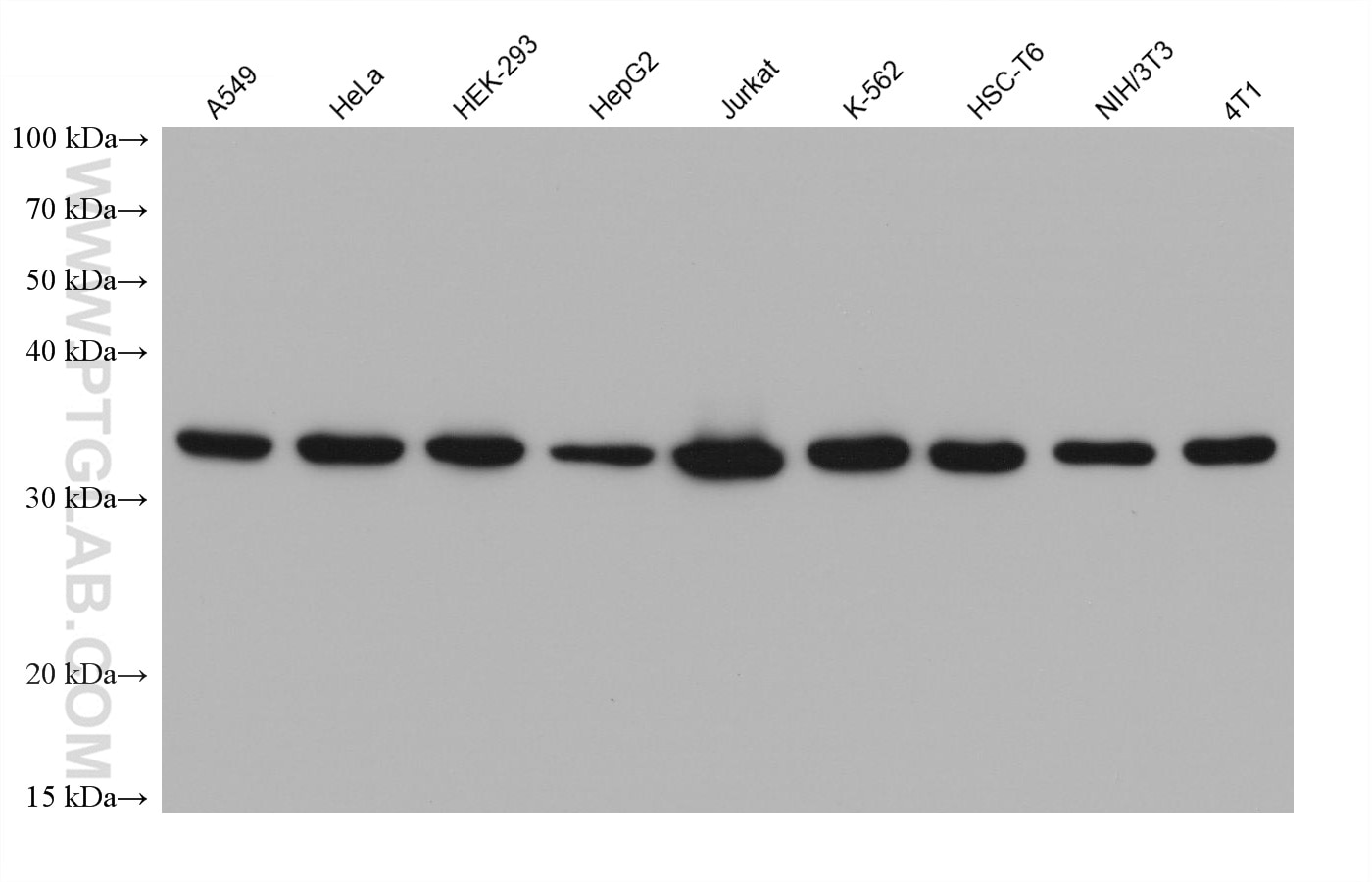OTUD6B Monoclonal antibody
OTUD6B Monoclonal Antibody for WB, ELISA
Host / Isotype
Mouse / IgG1
Reactivity
Human, mouse , rat
Applications
WB, ELISA
Conjugate
Unconjugated
CloneNo.
1D1G1
Cat no : 68450-1-Ig
Synonyms
Validation Data Gallery
Tested Applications
| Positive WB detected in | A549 cells, HeLa cells, HEK-293 cells, HepG2 cells, Jurkat cells, K-562 cells, HSC-T6 cells, NIH/3T3 cells, 4T1 cells |
Recommended dilution
| Application | Dilution |
|---|---|
| Western Blot (WB) | WB : 1:5000-1:50000 |
| It is recommended that this reagent should be titrated in each testing system to obtain optimal results. | |
| Sample-dependent, Check data in validation data gallery. | |
Product Information
68450-1-Ig targets OTUD6B in WB, ELISA applications and shows reactivity with Human, mouse , rat samples.
| Tested Reactivity | Human, mouse , rat |
| Host / Isotype | Mouse / IgG1 |
| Class | Monoclonal |
| Type | Antibody |
| Immunogen | OTUD6B fusion protein Ag33607 |
| Full Name | OTU domain containing 6B |
| Calculated Molecular Weight | 293 aa, 34 kDa |
| Observed Molecular Weight | 34-40 kDa |
| GenBank Accession Number | BC029760 |
| Gene Symbol | OTUD6B |
| Gene ID (NCBI) | 51633 |
| Conjugate | Unconjugated |
| Form | Liquid |
| Purification Method | Protein G purification |
| Storage Buffer | PBS with 0.02% sodium azide and 50% glycerol pH 7.3. |
| Storage Conditions | Store at -20°C. Stable for one year after shipment. Aliquoting is unnecessary for -20oC storage. 20ul sizes contain 0.1% BSA. |
Background Information
OTUD6B, also known as DUBA5, belongs to a DUB subfamily characterized by an ovarian tumor domain (OTU). It's a functional deubiquitinating enzyme, a class of protease that specifically cleaves ubiquitin linkages. OTUD6B function may be connected to growth and proliferation. It has been reported that OTUD6B could significantly suppress HCC cells migration and metastasis. The calculated molecular weight of OTUD6B is 34 kDa, 68450-1-Ig can detect the band around 34 kDa.(PMID:32323143)
Protocols
| Product Specific Protocols | |
|---|---|
| WB protocol for OTUD6B antibody 68450-1-Ig | Download protocol |
| Standard Protocols | |
|---|---|
| Click here to view our Standard Protocols |


